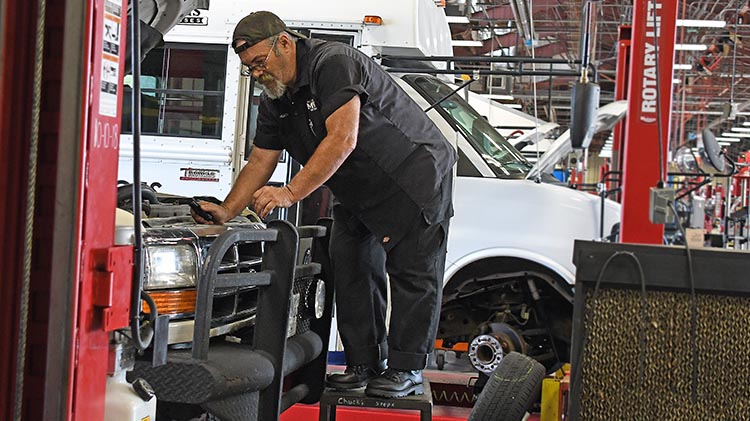All Categories
Featured
Electric cars (EVs) are revolutionizing the automobile world with their environmentally friendly promise, but their rising appeal brings a critical challenge: taking care of the end-of-life cycle of EV batteries. These batteries, which are large, complicated, and consist of valuable materials, should be reused to decrease environmental influence and take full advantage of resource reuse. Significantly, service center are stepping up to offer electrical vehicle battery reusing services, connecting the void between sustainability and customer convenience.
![]()
Reducing Waste: Preventing batteries from accumulating in garbage dumps. Conserving Resources: Recouping rare-earth element to reduce dependence on mining. Minimizing Contamination: Preventing the release of harmful substances right into the setting. Considered that numerous EV batteries will certainly reach their end of life in the following years, reusing them is a pushing need.
Battery Collection: Many repair work stores act as collection factors for spent EV batteries, guaranteeing they are moved to certified reusing facilities. Safe Handling: Service technicians at these stores are educated to manage the disassembly and storage of batteries safely, decreasing the danger of fire or leakage. Repurposing Opportunities: Some shops function to examine whether batteries can be repurposed for second uses, such as power storage space for businesses or homes. 3. Makers and Recycling Collaborations. Lots of automakers are actively associated with battery recycling programs, and service center connected with them play a critical role. As an example:
Tesla and Redwood Products: Tesla works together with Redwood Materials to recycle batteries, with several Tesla-certified repair service centers promoting the procedure. Ford and GM Initiatives: These companies partner with third-party recyclers to recoup essential materials and offer their services through licensed repair work networks. Independent repair shops are likewise joining the motion, commonly partnering with leading recyclers like Li-Cycle or Umicore to handle batteries from different EV brand names.
Ease: Customers can leave old batteries at their local store without handling specialized centers. Expense Financial savings: Some stores offer discount rates or debts towards brand-new battery purchases when old ones are reused. Comfort: Partnering with a reliable repair service shop makes sure that batteries are recycled properly, supporting sustainability. 5. Difficulties Facing Fixing Shops. In spite of the development of battery recycling, obstacles persist:
![]()
Technical Complexity: EV batteries call for specific training and devices to manage safely. Facilities Spaces: Not all regions have durable recycling networks, restricting the availability of these services. Cost Barriers: Transporting and recycling batteries can be costly, specifically for smaller sized service center. Innovations in reusing innovation and government motivations are assisting conquer these challenges.
Verdict. Repair stores supplying electrical lorry battery recycling are leading the way for a lasting automobile future. By supplying accountable and easily accessible solutions, these companies help attend to the environmental obstacles posed by EV batteries while fulfilling the demands of eco-conscious consumers.
As an EV owner, picking a repair shop with reusing services not just ensures your vehicle's maintenance but likewise adds to a greener planet. The industry's commitment to battery recycling shows a shared goal: driving advancement while safeguarding the environment for generations to find.

- Why EV Battery Recycling Matters. EV batteries are made from lithium-ion cells consisting of materials like cobalt, lithium, and nickel. These components are very valuable however can posture environmental dangers if incorrectly dealt with. Recycling EV batteries is necessary for:
Reducing Waste: Preventing batteries from accumulating in garbage dumps. Conserving Resources: Recouping rare-earth element to reduce dependence on mining. Minimizing Contamination: Preventing the release of harmful substances right into the setting. Considered that numerous EV batteries will certainly reach their end of life in the following years, reusing them is a pushing need.
- How Fixing Shops Assistance Recycling. Repair stores are becoming principals in EV battery recycling, many thanks to partnerships with manufacturers and specialized recyclers. Right here's how they add:
Battery Collection: Many repair work stores act as collection factors for spent EV batteries, guaranteeing they are moved to certified reusing facilities. Safe Handling: Service technicians at these stores are educated to manage the disassembly and storage of batteries safely, decreasing the danger of fire or leakage. Repurposing Opportunities: Some shops function to examine whether batteries can be repurposed for second uses, such as power storage space for businesses or homes. 3. Makers and Recycling Collaborations. Lots of automakers are actively associated with battery recycling programs, and service center connected with them play a critical role. As an example:
Tesla and Redwood Products: Tesla works together with Redwood Materials to recycle batteries, with several Tesla-certified repair service centers promoting the procedure. Ford and GM Initiatives: These companies partner with third-party recyclers to recoup essential materials and offer their services through licensed repair work networks. Independent repair shops are likewise joining the motion, commonly partnering with leading recyclers like Li-Cycle or Umicore to handle batteries from different EV brand names.
- Consumer Advantages of Repair Service Shop Recycling Services. For EV proprietors, fixing shops offering recycling services provide a host of advantages:
Ease: Customers can leave old batteries at their local store without handling specialized centers. Expense Financial savings: Some stores offer discount rates or debts towards brand-new battery purchases when old ones are reused. Comfort: Partnering with a reliable repair service shop makes sure that batteries are recycled properly, supporting sustainability. 5. Difficulties Facing Fixing Shops. In spite of the development of battery recycling, obstacles persist:

Technical Complexity: EV batteries call for specific training and devices to manage safely. Facilities Spaces: Not all regions have durable recycling networks, restricting the availability of these services. Cost Barriers: Transporting and recycling batteries can be costly, specifically for smaller sized service center. Innovations in reusing innovation and government motivations are assisting conquer these challenges.
- Looking Ahead: The Future of EV Battery Recycling. The function of service center in EV battery recycling is readied to broaden as the EV market expands. Federal governments worldwide are establishing policies to encourage recycling, and manufacturers are buying collaborations to simplify the process. As these fads continue, more service center are most likely to take on EV battery recycling, making it a basic part of their solution offerings.
Verdict. Repair stores supplying electrical lorry battery recycling are leading the way for a lasting automobile future. By supplying accountable and easily accessible solutions, these companies help attend to the environmental obstacles posed by EV batteries while fulfilling the demands of eco-conscious consumers.
As an EV owner, picking a repair shop with reusing services not just ensures your vehicle's maintenance but likewise adds to a greener planet. The industry's commitment to battery recycling shows a shared goal: driving advancement while safeguarding the environment for generations to find.
Latest Posts
Contact Montclare Auto Repair for Assistance - Fast Service You Can Count On
Published Apr 19, 25
2 min read
Financial Protection for every single Phase of Life
Published Apr 19, 25
1 min read
Accomplish Your Financial Desires with WyHy's Wide range Administration Services
Published Apr 19, 25
1 min read
More
Latest Posts
Contact Montclare Auto Repair for Assistance - Fast Service You Can Count On
Published Apr 19, 25
2 min read
Financial Protection for every single Phase of Life
Published Apr 19, 25
1 min read
Accomplish Your Financial Desires with WyHy's Wide range Administration Services
Published Apr 19, 25
1 min read